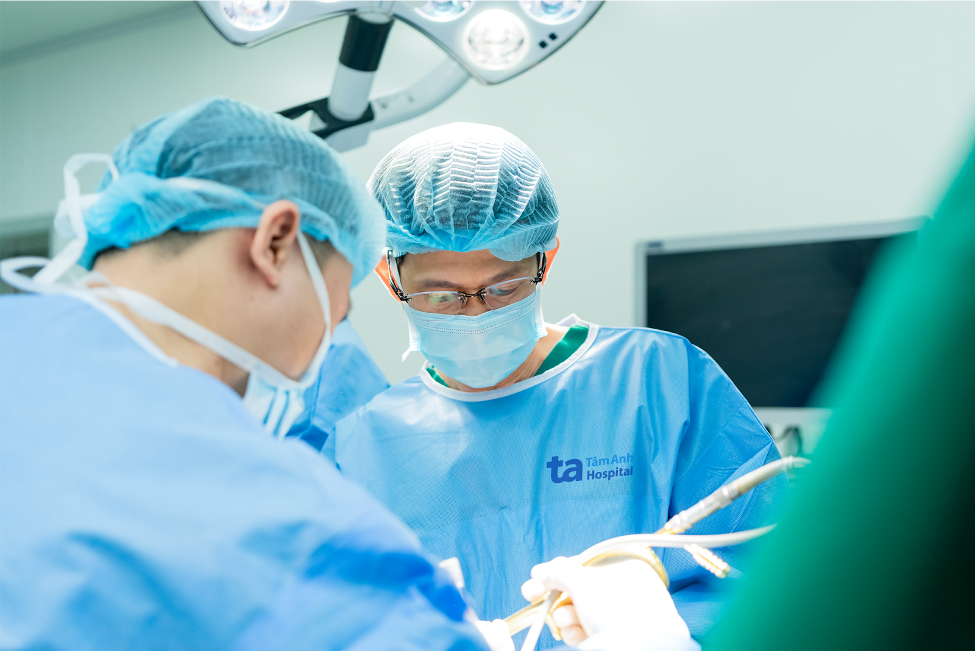41-year-old Muoi discovered a lump in her right breast last year but didn't seek medical attention. Recently, the lump grew larger and became painful, prompting her to visit Tam Anh General Hospital in Ho Chi Minh City. An ultrasound and mammogram revealed a 5 cm mass with its own blood supply. A biopsy confirmed stage 3, hormone-receptor-positive breast cancer.
Muoi is the 4th member of her family to be diagnosed with breast cancer. Her aunt received her diagnosis in 2010, her cousin in 2018, and her sister in 2019 at the age of 45. All have undergone treatment and continue regular check-ups, but genetic testing has not identified any breast cancer-causing mutations.
Muoi underwent 6 rounds of chemotherapy to shrink the tumor before a "5-in-1" surgery. This procedure included removal of the cancerous breast tissue, a preventive mastectomy on the other breast, removal of lymph nodes under the arm, a laparoscopic oophorectomy (ovary removal), and breast reconstruction. This comprehensive approach minimizes the need for multiple surgeries, increases treatment effectiveness, and reduces the risk of recurrence. Post-surgery, radiation therapy is recommended to further minimize the chance of the cancer returning.
 |
Doctor Huynh Ba Tan and the surgical team operating on the patient. Photo: Tam Anh General Hospital |
Doctor Huynh Ba Tan and the surgical team operating on the patient. Photo: Tam Anh General Hospital
Doctor Huynh Ba Tan from the Breast - Head and Neck Surgery Department explained that several factors increase the risk of breast cancer: inherited genetic mutations, family history (multiple family members with breast cancer, even without identified mutations), and others. Family history accounts for approximately 5% of cases. Women with a mother, sister, or daughter (first-degree relative) diagnosed with breast cancer at a young age (under 50) have double the average risk. Those with a second-degree relative (grandparent, aunt, uncle, niece, or nephew) with breast cancer face a moderate risk increase.
For patients like Muoi, the risk of recurrence and metastasis is higher. These risks can be managed through combined therapies such as chemotherapy, radiation, preventive mastectomy, ovary removal, or hormone-suppressing medication (for hormone-receptor-positive breast cancer).
Doctor Tan recommends annual breast cancer screenings for women aged 40 and above. Those at higher risk (family history, BRCA gene mutations) should begin screening before 40. If a mother has had breast cancer, her daughter should start screening 10 years earlier than the mother's age at diagnosis.
Nguyen Tram
*The patient's name has been changed.
| Readers can submit questions about cancer here for doctors to answer. |












